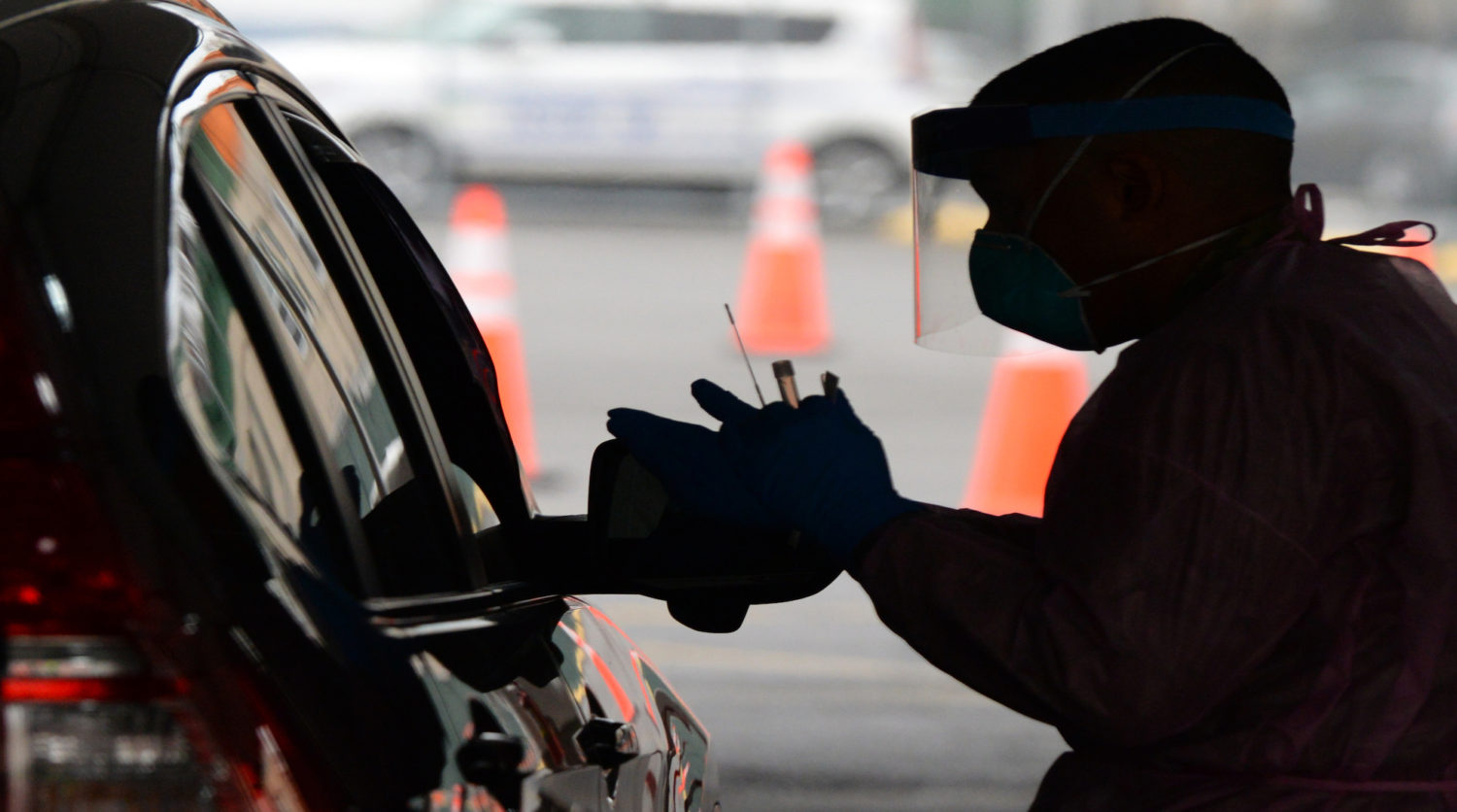Confidence in councils
Local government should lead on the next phase of coronavirus testing, argues Philip Glanville.
Respectful opposition aside, Labour has to be clear that the government’s coronavirus testing programme has been nothing short of a disaster. As a leader in local government, I have witnessed the brunt-end of the shambolic, partially outsourced and centrally-run testing regime.
Website crashes are just one part of the painful experience. In my council ─ the London Borough of Hackney ─ for weeks the only testing centres available for our key workers were all drive-through and out-of-borough, excluding over two-thirds of our residents who do not own a car, and who might want to avoid public transport.
We were told less than 24 hours in advance that our testing centre had finally been set up and it opened for just two days. We rushed out communications to our key workers who were desperate to get tested so they could get back on the frontline.
But this centre was also drive-through only, unless you knew the ‘hack’ of writing ‘WALKING’ into the vehicle registration box on the booking form. Our key workers should not need to know technical hacks to get a test. It is an issue that remains unresolved.
This isn’t to take away from the fantastic job the army did in setting up and running our local centre alongside Council staff. They too have had to deal with confusing top-down missives from central government while quickly getting to grips with the local area, and I would like to thank them for their service.
We have had to rely on the army because the government was rushing to meet their arbitrary 100,000 tests-per-day target ─ something Paul Nurse, director of the Francis Crick Institute, called: “a bit of a PR stunt, which has gone a bit wrong.”
What Matt Hancock failed to mention is that his department moved the goalpost. The 100,000 tests-per-day achievement included the home testing kits that were posted out each day, not necessarily the tests that testing laboratories received back, with many stories locally of them going missing.
And now, as the government finally outlines its strategy to ‘test, track and trace’ through mobile phone apps and centralised recruitment, they risk making the same mistake again.
How are our digitally excluded and potentially more at-risk communities, as well as Hackney’s Charedi Hasidic Jewish community ─ the largest in Europe ─ which often for religious reasons reject smartphones, included in this strategy? How are they meant to book online-only tests, be contacted with reports of local outbreaks, or report symptoms?
The ‘three T’s’ is the right tactic, but it is being driven by the same centralising tendencies of the government which have shaped the inadequate response to testing so far.
The contract for delivering home testing kits has been handed over to Amazon UK; Deloitte was asked to scale-up testing nationally (often bypassing and rejecting local NHS capacity); Serco has been handed a contact tracing contract; and the French company Edenred was brought in to distribute emergency food vouchers to the 1.3 million children on free school meals.
In all of these contracts, grave mistakes were made. Families have gone without food, tests were sent to the wrong NHS laboratories and NHS staff sent to the wrong test centres. All of these challenges could have been met by councils, with the right framework of support from the government.
On top of this, Matt Hancock wants to centrally recruit “an army” of 18,000 contract tracers, through a complex regional and call centre model, when local councils already have public health forces in reserve.
Councils run successful sexual health testing and tracing programmes, with experienced teams overseen by local public health directors that integrate with our local primary care services – as we did successfully in Hackney with measles two years ago. At the moment, it is not clear how key local authority staff in fields such as environmental health, trading standards and sexual health services will be involved in the national programme.
Town Halls, and not Whitehall, should take control of the next phase of coronavirus testing. But the Tories infantilising of local government, decade-long austerity agenda and disdain for ‘big-state’ politics is blocking the eventual defeat of the coronavirus.
The next phase of the coronavirus pandemic will be effectively tackled as a response to local outbreaks, rather than a national pandemic. Just as Paul Nurse said: “If we had had local testing connected to hospitals, we could have made hospitals a safe place. But what we had was the potential for care workers on the wards, working with sick patients, who were carrying the disease and weren’t being tested.”
Public health is one of the original functions of local government, dating back to Public Health Act 1848. Through this act, boroughs gained control of drainage and water supply, loans were made available for public health infrastructure, local Boards of Health were set-up and local medical officers appointed.
Today, councils are eager to renew our historic role and shape the next phase of the testing response. The appointment of Leeds Council chief executive Tom Riordan as the national lead for contact tracing is welcome, and hopefully a step in the right direction, but weeks (two since I wrote to Matt Hancock) have gone by when this work could have started.
As local authorities, we are best placed to work in cooperation with our communities to roll-out a ‘Hackney Testing Service’ — or equivalents in each area. We can also fold in local advice, help and support ─ referring people on to humanitarian support when needed. This not only will help contain the virus, improving our understanding of the crucial ‘R’ number locally, but also rebuild and retain trust with the communities hardest hit by the crisis so far.
We just need the government to listen and trust us.
Photo credit: New York national guard/Flickr

